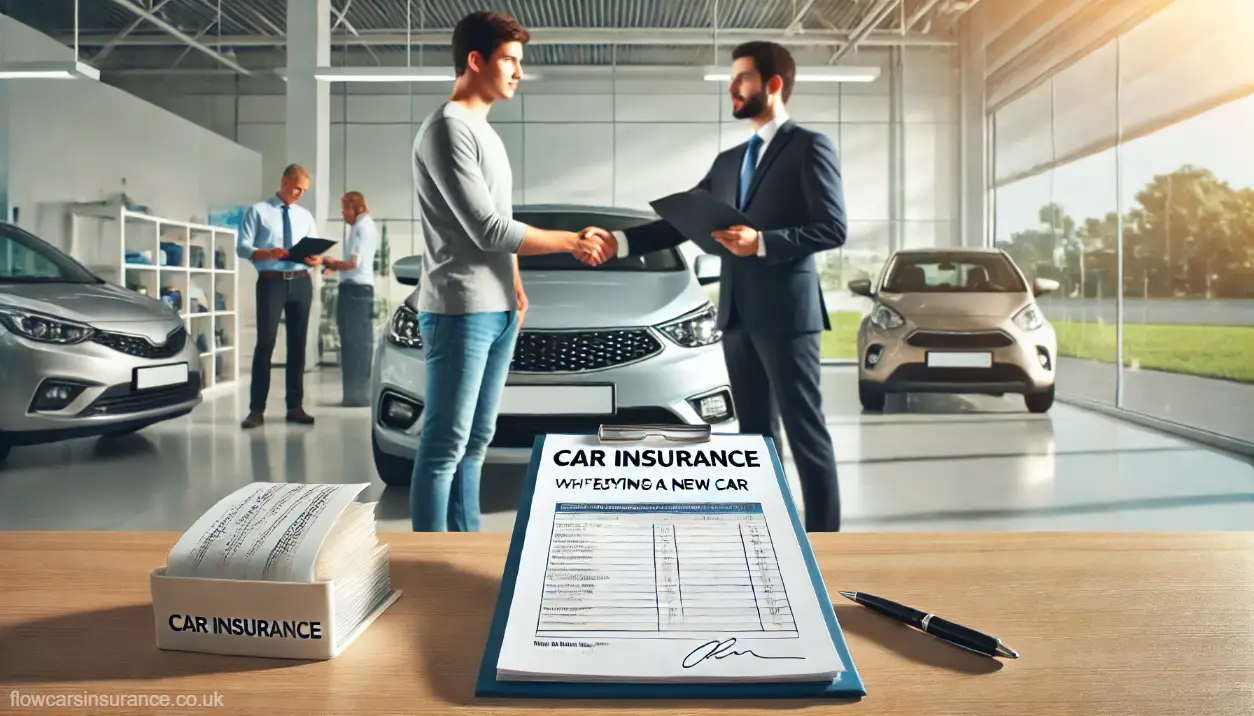Key Takeaway: Driving a brand-new car off the dealership lot is exhilarating—but before you start the engine, securing the right insurance is essential.
Failing to arrange coverage can leave you in violation of state laws, delay your purchase, or expose you to significant financial risk.
This guide walks you through every aspect of insuring a new vehicle, from timing and required coverages to tips for saving on premiums.
1. Why You Must Insure a New Car Before Driving Away
Every U.S. state (except Virginia, which allows a $500 fee alternative) mandates minimum liability insurance before you can legally drive. Dealers and lenders typically require proof of insurance—and if you’re financing or leasing, they will insist on full coverage (liability plus collision and comprehensive) to protect their interest in the vehicle. Without insurance:
- You cannot register or title the vehicle.
- The dealer may withhold keys until you show a valid insurance card.
- Driving uninsured risks fines, license suspension, and personal liability for any accident damages.
2. When to Arrange Coverage: The Grace Period
Most insurers automatically extend your existing policy’s coverages to a “newly acquired auto” for a grace period—typically 7 to 30 days—to give you time to notify them and adjust coverages. Key points:
- Grace period length varies by insurer, often 7–14 days for dealers’ weekend closures or up to 30 days by top carriers.
- This temporary extension applies only at your current coverage level. If you had liability-only, your new car remains uninsured for collision or comprehensive until you update your policy.
- Always confirm your insurer’s specific grace period and the coverages it includes before purchase.
3. Step-by-Step Guide to Insuring Your New Car
- Identify Your Desired Coverage Levels
- Liability (state minimum to protect others)
- Collision (repairs if you’re at fault)
- Comprehensive (non-collision losses such as theft, hail)
- Optional add-ons: loan/lease payoff (gap coverage), roadside assistance
- Gather Essential Information
- Vehicle Identification Number (VIN)
- Make, model, year, and purchase price
- Intended primary use (personal, business, ridesharing)
- Names and birthdates of all household drivers
- Shop Around for Quotes
- Compare at least three insurers—either directly online or via an independent agent—to find competitive rates.
- Add the Car to Your Policy
- Call your insurer from the dealership with the VIN and coverage choices. Obtain an electronic proof-of-insurance card to present at signing.
- Verify and Adjust
- Review your declarations page to ensure coverages, deductibles, and limits match your loan or lease requirements.
- Cancel or Modify Old Policies
- If replacing an existing vehicle, adjust deductibles or remove the old vehicle once the new one is on file. Never leave a coverage gap.
4. Key Coverages Explained
| Coverage Type | What It Covers | Typical Requirement |
|---|---|---|
| Liability | Injuries and property damage you cause to others | Required in all states |
| Collision | Damage to your car from collision with object or vehicle | Required by lenders/lessors |
| Comprehensive | Theft, vandalism, fire, weather-related damage | Required by lenders/lessors |
| Gap (Loan/Lease Payoff) | Difference between loan balance and car’s actual cash value | Optional, recommended for financed vehicles |
5. Factors Affecting New Car Insurance Premiums
- Vehicle Value and Type: Higher MSRP and performance models command higher rates due to repair and replacement costs.
- Driver Profile: Age, driving history, credit score (where permitted), and location influence risk assessment.
- Usage and Mileage: Business or ridesharing usage increases premiums. Garaging location in high-theft or accident-prone areas also drives up rates.
- Deductibles and Limits: Higher deductibles lower premiums, but raise out-of-pocket expenses after a claim.
6. Tips to Lower Your New Car Insurance Costs
- Bundle Policies: Combine auto with homeowners or renters insurance for multi-policy discounts.
- Opt for Safety Features: Anti-theft devices, backup cameras, and advanced driver-assist features can qualify for credits.
- Maintain Good Credit: In most states, a strong credit history correlates with lower premiums.
- Raise Deductibles: Evaluate whether an increased deductible is manageable in the event of a claim.
- Shop Annually: Re-quote every renewal period to capture market shifts or new discounts.
Securing proper insurance for your new car ensures legal compliance, protects your investment, and gives you peace of mind from the moment you drive off the lot. By understanding grace periods, selecting appropriate coverages, and proactively comparing quotes, you can enjoy that new-car experience without unexpected financial setbacks.
